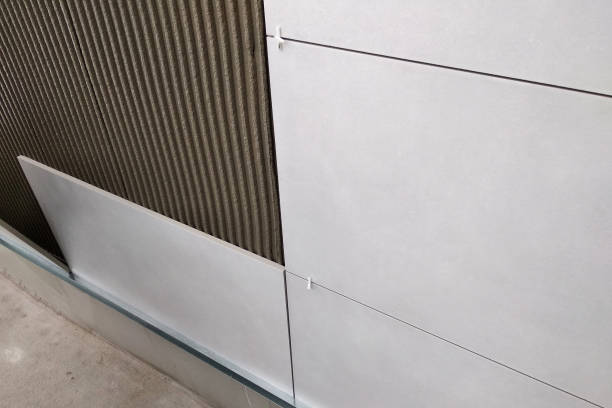SPC (Stone Plastic Composite) wall panels have emerged as a popular and versatile choice for both residential and commercial interior wall applications. Their durability, water resistance, and aesthetic appeal make them a preferred alternative to traditional drywall and wood paneling. However, with a range of thicknesses available, selecting the appropriate SPC wall panel thickness is crucial for ensuring optimal performance and a long-lasting installation.
Understanding the Factors Influencing SPC Wall Panel Thickness
Several factors influence the selection of the correct SPC wall panel thickness:
Application and Expected Usage: The intended application and anticipated usage of the wall panels significantly impact the thickness requirement. High-traffic areas, such as hallways and entryways, demand thicker panels for enhanced durability, while low-traffic areas like bedrooms can accommodate thinner panels.
Subfloor Condition and Support: The condition and support of the underlying subfloor play a vital role in determining the appropriate panel thickness. Uneven or weak subfloors require thicker panels to compensate for potential irregularities and provide adequate support.
Desired Soundproofing and Insulation: Thicker SPC wall panels offer improved soundproofing and insulation properties, reducing noise transmission and enhancing thermal comfort. Consider the acoustic requirements of the space when selecting panel thickness.
Aesthetic Preferences and Design Goals: SPC wall panels come in a variety of thicknesses, each offering a distinct aesthetic appeal. Thinner panels may create a more spacious feel, while thicker panels can add a sense of solidity and visual interest.

General Guidelines for SPC Wall Panel Thickness Selection
As a general guide, consider the following thickness recommendations for different applications:
Low-traffic residential areas (bedrooms, living rooms): 3mm to 4mm
Moderate-traffic residential areas (kitchens, bathrooms): 4mm to 5mm
High-traffic residential areas (entryways, hallways): 5mm to 6mm
Commercial applications: 6mm to 8mm or more, depending on specific usage and requirements
Additional Considerations for SPC Wall Panel Thickness
Apart from the general guidelines, consider these additional factors when selecting SPC wall panel thickness:
Panel Size and Installation Method: Larger panels may require increased thickness for stability, while smaller panels can accommodate thinner options. Ensure the chosen thickness is compatible with your preferred installation method.
Budget and Cost Considerations: Thicker panels generally cost more than thinner ones. Evaluate your budget and weigh the cost against the desired performance and aesthetic benefits.
Local Building Codes and Regulations: Adhere to any applicable building codes or regulations that may mandate specific wall panel thicknesses for certain applications.
Consulting Experts for Personalized Recommendations
When selecting SPC wall panel thickness, consulting with experienced professionals or reputable suppliers is highly recommended. They can assess your specific needs, consider the factors mentioned above, and provide personalized recommendations tailored to your project.
Choosing the Right SPC Wall Panel Thickness – A Foundation for a Successful Installation
Selecting the appropriate SPC wall panel thickness is an essential step towards a successful and long-lasting installation. By carefully considering the application, subfloor condition, desired performance, aesthetic preferences, and local regulations, you can make an informed decision that ensures your SPC wall panels deliver the durability, soundproofing, insulation, and visual appeal you desire.
Post time: Jul-17-2024




